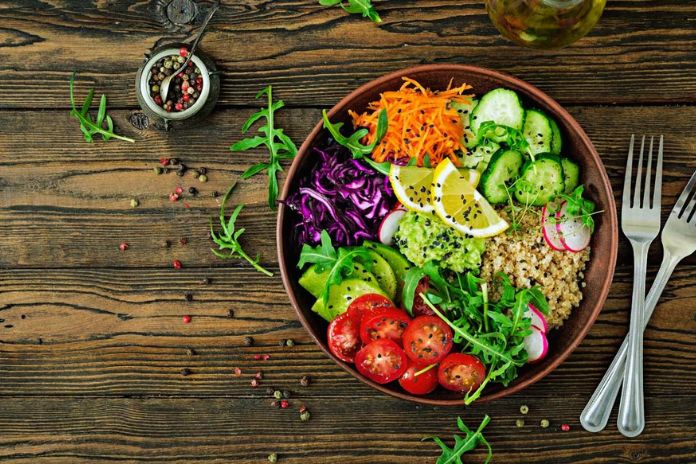Many people want to go on diets, especially now, at the end of the year. The summer project is in full swing… But does it work? What benefits can diets bring your life in the short, medium and long term?
Today you will know the answers to these and other questions. Grab a glass of water, sit comfortably in your best chair, take a deep breath and get ready! Our reading won’t be extended, but it’s good to get used to healthier habits, even in the minor tasks of the day, like reading a text on the internet!
What Are Diets?
“I’m on a diet” is commonly used to refer to a particular food restriction to lose weight or slim the body, but is it the correct way to attribute such an action?
Let’s start to understand more about what a diet is or, as experts and professionals prefer to call it, food reeducation.
Although the expression “diet” is not wrong to refer to weight loss through food, the real meaning of the word is given to standardized eating habits to teach proper eating based on the body’s needs.
The food diet improves your quality of life with the consumption of food in the right way. With a good diet, it is possible to cut bad habits, which can severely damage your health. It also aims to balance your diet with other external factors that may interfere with your life and diet, including economic, social, cultural or even geographic factors.
What Is Regimen?
In the case of diet, often done by the individual without the help of a professional (not recommended), it is a dietary restriction that stipulates the “cutting” of certain foods mainly with the intention of a quick result for the loss of body mass. The abrupt act often causes more problems than solutions. An excellent example is the “accordion effect”, where the individual recovers after a specific time and gains more weight than when he started the regime.
What Types Of Diets Are There?
When it comes to diets for weight control, follow-up with a specialist in the nutritional field is essential, as the lack of guidance can end up causing several adverse effects on your health.
It is worth noting that there are different types of diets, each focusing on other food groups with their own goals and emphases, be it weight loss and weight loss, muscle mass gain, or even to stay healthier.
For Weight Loss Or Diet
Diets for weight loss tend to be the most common and sought after, either for being overweight or for aesthetic reasons. Carrying out the process is usually done by cutting out certain high-calorie foods and drinks.
The balance in consumption should therefore be established according to the age, sex and health condition of the individual.
Here are some tips for a healthy weight-loss diet:
1- Feed Every 3 Hours
Longer fasts make the body store more fat tissue and burn more muscle mass. We don’t want that to happen, do we?
2- Invest In Fruits
Light foods can complement the main diet and help suppress the appetite between meals. Eat between three to six a day.
3- Drink Plenty Of Water
Always drink a glass just before each meal but avoid drinking during (at least 1 hour after). Take two to three liters a day.
4- Avoid Fried Foods
Instead of deep-fried foods, try baked and boiled foods.
5- Bet On Greenbacks
Eat salad before the meal as it helps to avoid overindulging in the main course.
Watch out for word of mouth! It is also important to point out that the common practice of dieting, promoted through popular discourse and highly controversial, can cause severe damage to health. If you hear from a neighbor that she used an x diet to lose weight, be extremely careful when practicing it yourself and consult a specialized nutritionist beforehand to ensure that you do not harm yourself in food reeducation.
Muscle Mass Gain
To gain muscle mass, a diet and routine that is very different from those looking to lose weight is established. Not only will it be necessary to have a diet aimed at increasing the gain of calories and healthy fats, but also a routine of physical exercises that require the stimulus of hypertrophy for the body (training that requires muscle mass).
During the diet process, it is essential to avoid consuming sugar, white flour and industrialized products as these are the primary fat stimulators in the body so that you can only accumulate lean mass and lose fat simultaneously.
Here are also some tips for the ideal mass gainer diet:
Consume More Than Spend (in a prudent way)
Maintaining this balance between gain and loss is essential for the process, as the excess calories consumed will allow muscle mass growth. But this is only possible through physical exercises enabling the exchange instead of generating fat.
Avoid Skipping Meals
Especially breakfast, before and after training; avoid missing meals as it is essential to reach all the necessary calories for the day without causing loss of lean mass due to prolonged fasting. Having an average of 5 or 6 meals a day is essential.
Eat More Protein And Good Fats
Increased protein consumption is excellent for muscle growth, but it must be well distributed throughout the day, not just in 2 or 3 meals.
Most proteins come from animal foods such as meat, fish, chicken, cheese, eggs and dairy products. In the case of good fat, contrary to what one might imagine, it helps reduce fat accumulation in the body and facilitates calorie gain. They are present in avocados, olives, peanuts, chestnuts, walnuts and even some fish.
Drink A Lot Of Water
Frequent water consumption helps stimulate hypertrophy, thus making muscle cells grow faster.
Also Read: Menopausal Diet: Tips To Stay Fit

